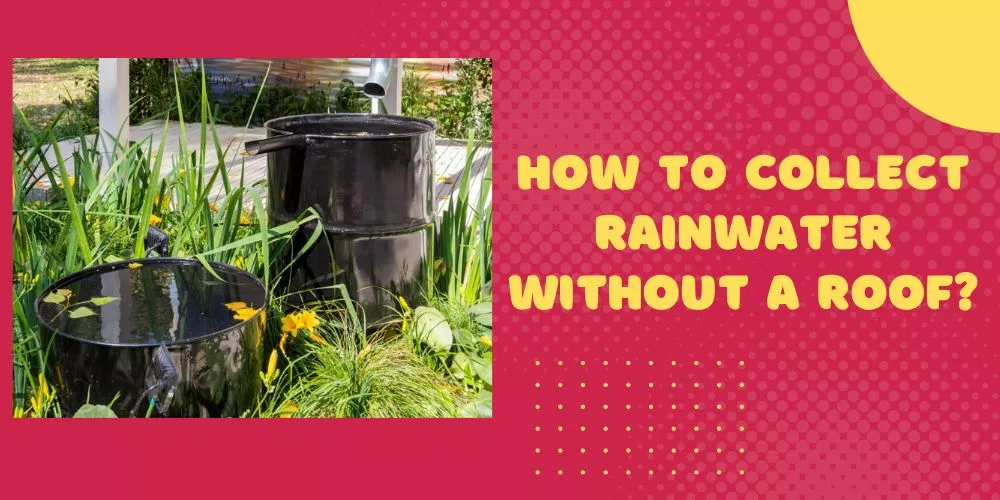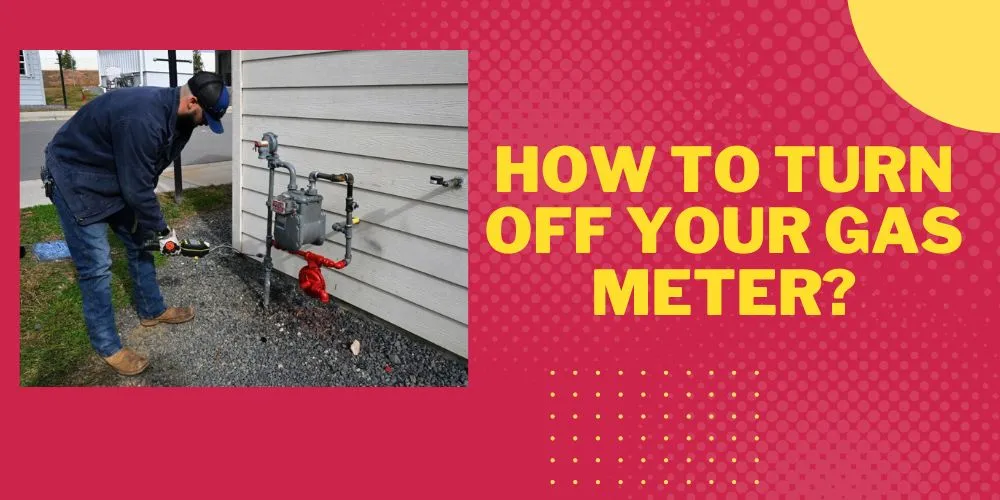Learning how to to boil water without electricity fosters independence and prepares us for unforeseen circumstances. Natural disasters, power outages, or off-grid living can challenge our daily routines.
Boiling water is essential for purifying drinking water, cooking, and maintaining hygiene. Mastering alternative methods, such as solar power, camp stoves, or even a simple fire, empowers individuals to adapt and thrive in diverse situations.
Embracing this indispensable skill is a small yet significant step towards self-reliance and resilience.
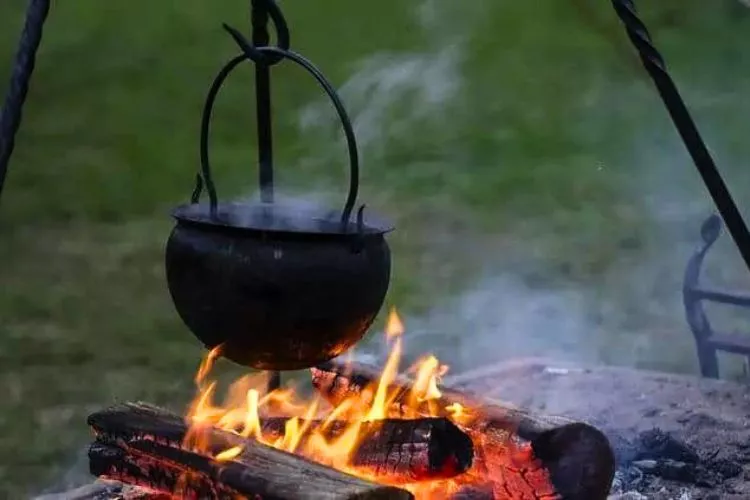
how to boil water without electricity? (A Detailed Guide)
There are many ways to boil water without electricity. We can use portable gas stove, solar cooker, wood fire and many other things to do that. However, there are some precautions that you need to be aware of while doing so.
I have written a detailed guide on how to boil water without electricity here in this article. You should go through all the process mentioned below carefiully.
Solar Cooker
Solar cookers are an eco-friendly and cost-effective way to boil water without electricity. They use the sun’s energy to heat the water, which makes them highly efficient in sunny conditions.
However, the efficiency of solar cookers decreases on cloudy days, and they are not suitable for use at night. In terms of convenience, solar cookers are relatively easy to set up and use, but they require direct sunlight and may take longer to boil water than other methods.
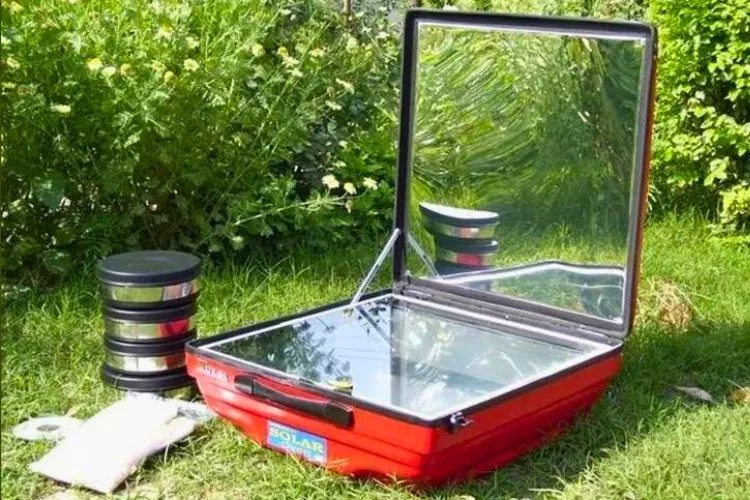
- Position the solar cooker in direct sunlight.
- Fill a dark-colored pot with water.
- Place the pot inside the solar cooker.
- Cover the cooker and wait for the water to boil.
Wood Fire
Wood fires are a traditional and versatile method for boiling water. They provide a strong heat source and can boil water relatively quickly. However, their efficiency depends on the type and dryness of the wood used and the fire’s size and temperature.
Wood fires can be inconvenient, requiring a suitable location, fire-building skills, and constant monitoring. They also produce smoke and can leave soot on cookware, making cleanup more challenging.
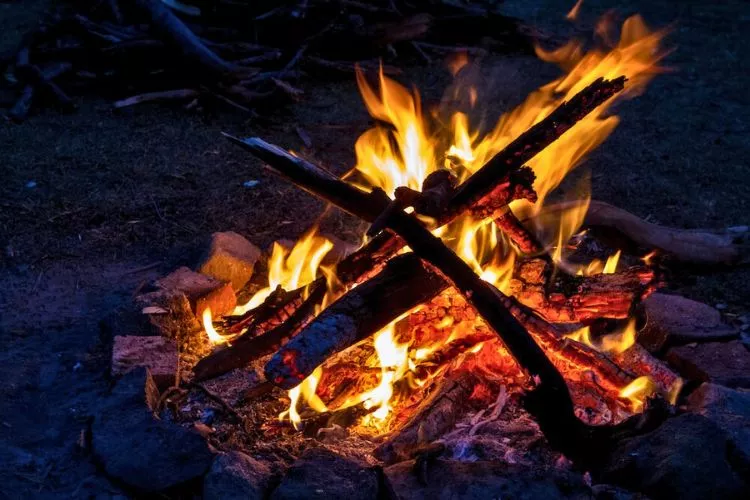
- Gather dry wood and kindling.
- Build a fire pit or use an existing one.
- Light the fire and let it burn until you have hot coals.
- Place a pot of water on a grate, tripod, or rocks above the fire.
- Wait for the water to boil.
Gas Stove
Gas stoves are a popular and efficient method for boiling water without electricity. They provide consistent heat and can bring water to a boil quickly.
Portable gas stoves are convenient for outdoor activities like camping and picnicking, but they rely on propane or butane canisters, which can be bulky and must be replaced periodically.
Gas stoves may not be suitable for indoor use without proper ventilation due to the risk of carbon monoxide buildup.
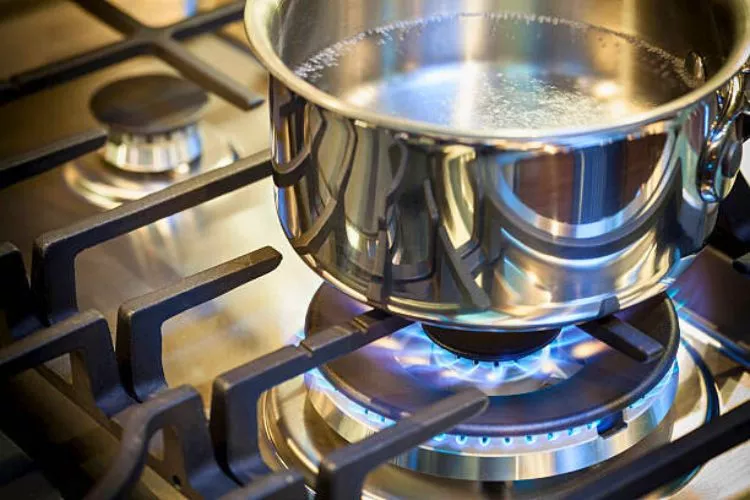
- Connect the gas stove to a propane or butane canister.
- Place a pot of water on the stove.
- Ignite the stove and adjust the flame.
- Wait for the water to boil.
Campfire Stove
Campfire stoves are compact and portable, making them convenient for outdoor enthusiasts. They offer moderate efficiency, depending on the type of fuel used. Wood-fueled camp stoves may be less efficient than fuel tablets, as the latter burns more consistently.
However, campfire stoves typically take longer to boil water than gas stoves and may require additional fuel or regular refilling.
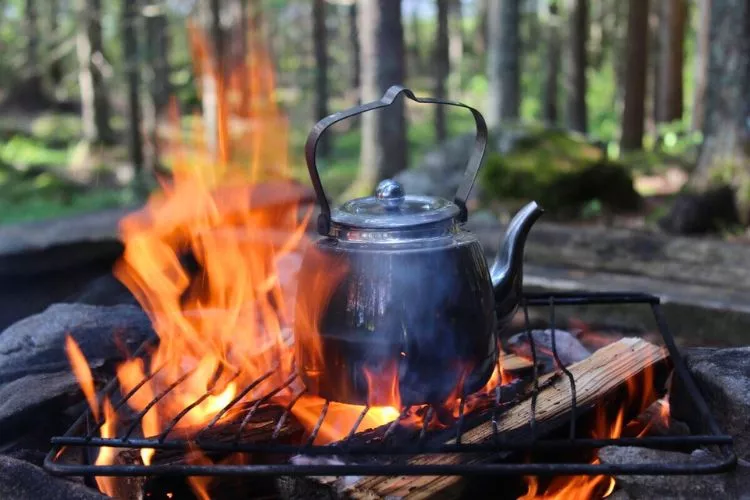
- Set up the campfire stove.
- Fill a pot with water and place it on the stove.
- Light the fire using wood or fuel tablets.
- Wait for the water to boil.
Charcoal Grill
Charcoal grills can efficiently boil water, as they provide consistent heat once the charcoal reaches the proper temperature. However, they can be less convenient than other methods, as they require time to heat the charcoal and may produce considerable amounts of smoke.
Charcoal grills are best suited for outdoor use, and their bulky size may make them less portable than other options.
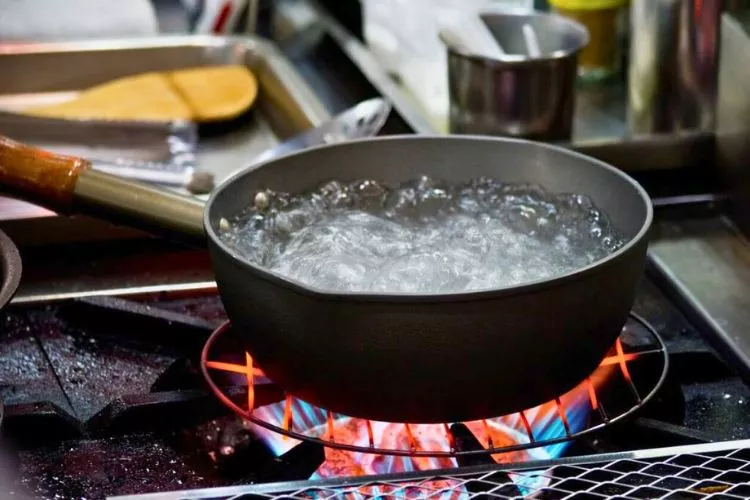
- Fill the grill with charcoal briquettes.
- Light the charcoal and let it heat until covered in white ash.
- Place a pot of water on the grill grate.
- Close the lid and wait for the water to boil.
Sterno Stove
Sterno stoves are a compact and portable option for boiling water without electricity. They offer moderate efficiency, as the heat output from Sterno fuel is lower compared to other fuel types.
Sterno stoves are convenient for indoor and outdoor use, producing minimal smoke and odor. However, they may take longer to boil water than other methods due to their lower heat output.
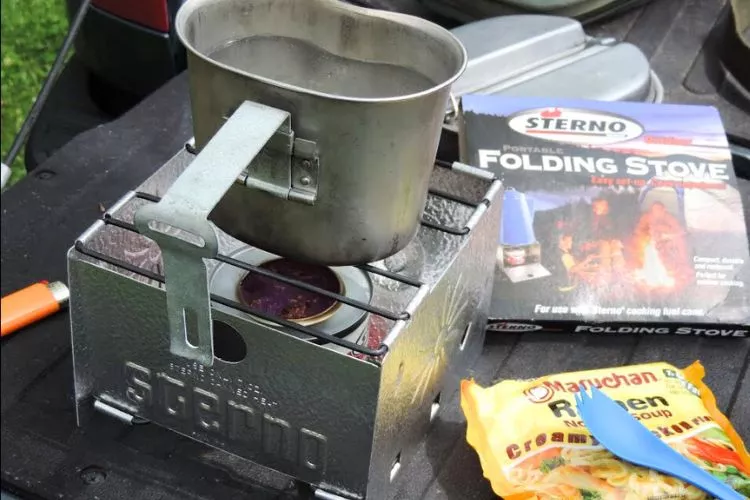
- Set up the Sterno stove and place a pot of water on top.
- Light the Sterno fuel can.
- Adjust the stove’s ventilation for proper heat.
- Wait for the water to boil.
Rocket Stove
Rocket stoves are a highly efficient way to boil water, as they utilize a small amount of fuel (wood or biomass) and concentrate the heat on the cookware.
They are convenient for outdoor use but may not be suitable for indoor applications due to smoke production. Rocket stoves can be bulky and require some skill to build or set up, which may be a drawback for some users.
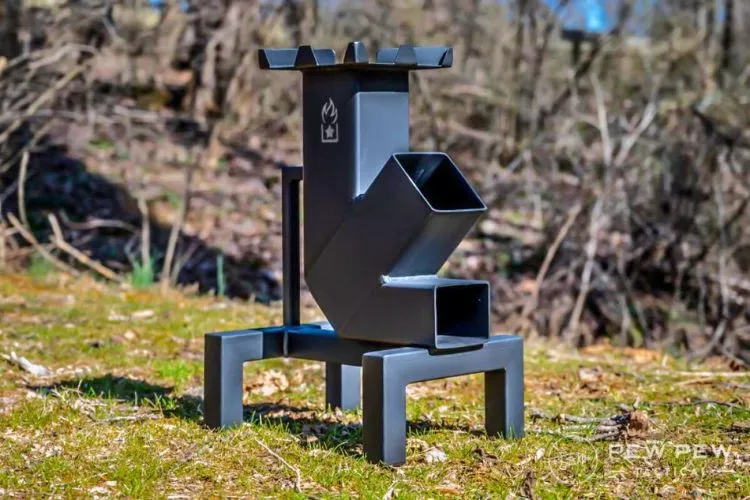
- Set up the rocket stove and add wood to the fuel chamber.
- Light the wood and let it burn.
- Place a pot of water on the stove.
- Wait for the water to boil.
Windshield Sun Reflector
Windshield sun reflectors can be a unique and cost-effective way to boil water without electricity. However, their efficiency depends on the intensity of sunlight, making them less reliable on cloudy days or during winter months.
They are lightweight and portable, but boiling water using this method may take longer than other methods. This method is best suited for emergencies or when other options are unavailable.
- Position the reflector in direct sunlight.
- Fill a dark-colored pot with water.
- Place the pot in the center of the reflector.
- Cover the pot with a clear plastic bag to trap heat.
- Wait for the water to boil.
Candle Heater
Candle heaters are a low-cost and widely available method for boiling water without electricity. However, their efficiency is limited, as the heat output from candles is relatively low.
Boiling water using this method can take a long time, making it less convenient than other options. Candle heaters are best used in emergencies or when no other heat sources are available.
- Set up several candles in a heat-resistant container.
- Light the candles and place a pot of water on a grate above them.
- Cover the pot and wait for the water to boil.
Chemical Heat Packs
Chemical heat packs can be convenient and portable for boiling water without electricity. They are easy to use and generate heat through a chemical reaction.
However, their efficiency is limited, and boiling water with this method may take longer than other options. Chemical heat packs can be a useful backup in emergencies but may not be the most practical solution for everyday use.
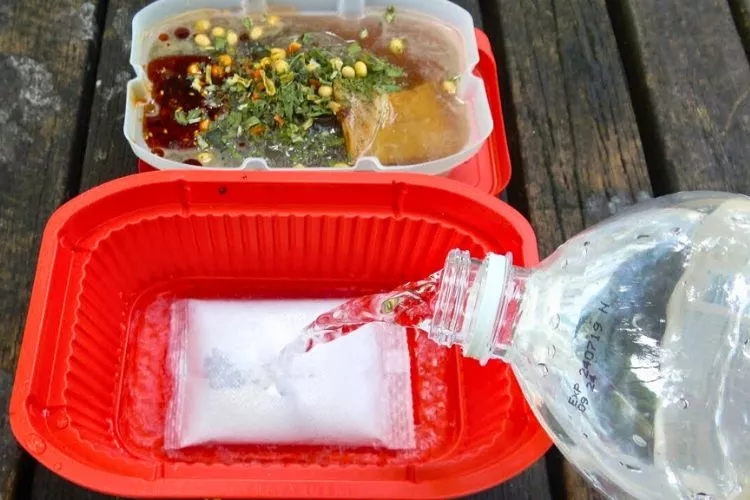
- Activate the chemical heat packs.
- Wrap the activated packs around a pot of water.
- Insulate the setup with a towel or blanket.
- Wait for the water to boil.
How do you boil water in an emergency?
In an emergency, the best way to boil water is by creating a controlled fire outdoors or using a portable gas stove, depending on available resources. This allows for quick and efficient water purification and cooking.
Choose a stable, heat-resistant surface, and ensure proper ventilation if using a gas stove indoors. Use a pot, pan, or metal canteen cup to hold the water, and place it securely on the heat source.
Once the water reaches a rolling boil, let it boil for at least one minute to ensure proper purification. Always exercise caution when handling hot containers and open flames.
Frequently Asked Questions (FAQs)
How can I boil water without a stove?
There are several ways to boil water without a stove. One option is to use a campfire or create a fire pit outdoors using wood or other natural materials. Another option is a portable gas stove, such as a backpacking stove or Sterno stove. You can also use a solar cooker or a reflector oven if you can access sunlight. Remember to always exercise caution when handling open flames.
Can you boil water with a candle?
While it is possible to boil water with a candle, it is not the most efficient method. It would require many candles and a long time to heat the water to boiling point. Additionally, candles can pose a fire hazard if not used properly. It is recommended to use a more reliable heat source, such as a stove or fire, if available.
What can you boil water in for survival?
In survival situations, you can boil water in a metal pot, pan, or canteen cup. If these items are unavailable, you can use alternative containers, such as a metal can or a hollowed-out piece of bamboo. It is important to avoid using plastic containers, as they can melt or release harmful chemicals when exposed to heat. Also, always ensure the container is clean before boiling it in water.
Another alternative methods
Another alternative method to boil water without electricity is using a rocket stove. Rocket stoves are designed to efficiently burn small amounts of wood or biomass and direct the heat to the cooking surface.
This method is particularly useful for outdoor cooking and emergency situations due to its compact and portable design. By utilizing a rocket stove, individuals can boil water quickly while minimizing fuel consumption.
Furthermore, for individuals in urban settings or confined spaces, utilizing a windproof camping stove can provide a convenient solution for boiling water without electricity.
These stoves are compact, lightweight, and designed to withstand windy conditions, making them suitable for outdoor activities or emergencies when traditional stoves may not be feasible.
Conclusion:
Knowing how to boil water without electricity is possible and essential in various situations, such as emergencies, power outages, or camping.
By exploring alternative methods like campfires, portable gas stoves, solar cookers, and even candles, individuals can ensure access to clean, purified water for cooking and drinking.
Mastering these techniques prepares us for unforeseen circumstances and helps us become self-sufficient and resourceful.
As a result, learning how to boil water without relying on electricity is a valuable skill everyone should acquire to enhance their adaptability and overall preparedness.

